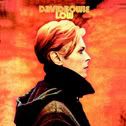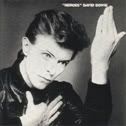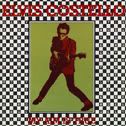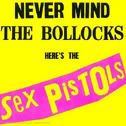No Elvis, Beatles or Rolling Stones in 1977 (Part 1)
Everywhere I turn lately, I see references to the thirtieth anniversary of things that happened in 1977 – the release of "Star Wars," the beginning of the personal computer, Elvis died, etc. It's weird enough for me to be alive and actually be able to remember 30 years ago, although at age 6 I wasn't much of a pop culture consumer (I vaguely recall Jimmy Carter's teeth, looming over all, and watching a lot of "Sesame Street").
But oddly enough, I've been listening to more music that was made in 1977 than anything else. In fact, most of the music that's been really grabbing me lately seems to have been in that broad "post-punk" era made between 1975 to 1983 or so. I'm living retro. '77 was an amazing year, though. If I wasn't in first grade at the time, I would've been rocking out hard.
Here's a two-part look at my 10 favorite albums from 1977. There were a lot of fine albums from 1977, and some didn't quite make the cut – notably, The Clash's first album is superb by any standard (and of course the song "1977" is where I stole my subject header from today), Wire's "Pink Flag" is razor-sharp punk power incarnate, and Fleetwood Mac's "Rumours" is near-perfect pop, but these are the ones that grabbed me the most.

 1. and 2. David Bowie, Low and "Heroes". What an extraordinary year for David Bowie fans '77 was. "Low" is pretty much not just one of the best albums Bowie ever did, but one of the best anyone ever recorded – thirty years on, it still sounds strangely "other," as if it were transmissions from Venus or something. The way the songs bleed over the course of the album from traditional verse-chorus-verse structure into a zone where there's no words, only language-less voices, the chilly vibe Brian Eno added to the music, the sensation that you're heading into unknown territories – most "experimental" artists would give their eyeteeth to make an album as strikingly new as this. "Heroes" doesn't get quite the same acclaim, but it's just as good, and that title track might just be the finest anthem of Bowie's career.
1. and 2. David Bowie, Low and "Heroes". What an extraordinary year for David Bowie fans '77 was. "Low" is pretty much not just one of the best albums Bowie ever did, but one of the best anyone ever recorded – thirty years on, it still sounds strangely "other," as if it were transmissions from Venus or something. The way the songs bleed over the course of the album from traditional verse-chorus-verse structure into a zone where there's no words, only language-less voices, the chilly vibe Brian Eno added to the music, the sensation that you're heading into unknown territories – most "experimental" artists would give their eyeteeth to make an album as strikingly new as this. "Heroes" doesn't get quite the same acclaim, but it's just as good, and that title track might just be the finest anthem of Bowie's career.  3. Elvis Costello, My Aim Is True. I did a story a few years back where I profiled the drummer on this album, a guy who calls himself "Mmicky Shine," believe it or not. One of the coolest parts of interviewing this rather distracted hippie-type guy was seeing a gold record of "My Aim Is True" hung high on the wall of his loft. This debut – another winner in a year full of first albums – didn't feature the Attractions, but a side band called Clover that actually ended up with Huey Lewis and the News. Anyway, while some of Elvis' later albums were more refined, I always had a soft spot for this debut, which is far more cynical and cruel than the Sex Pistols could imagine. Tunes like "Alison," "Blame It On Cain," and "Mystery Dance" are like daggers in song form. Amazing stuff and still one of my favorite discs.
3. Elvis Costello, My Aim Is True. I did a story a few years back where I profiled the drummer on this album, a guy who calls himself "Mmicky Shine," believe it or not. One of the coolest parts of interviewing this rather distracted hippie-type guy was seeing a gold record of "My Aim Is True" hung high on the wall of his loft. This debut – another winner in a year full of first albums – didn't feature the Attractions, but a side band called Clover that actually ended up with Huey Lewis and the News. Anyway, while some of Elvis' later albums were more refined, I always had a soft spot for this debut, which is far more cynical and cruel than the Sex Pistols could imagine. Tunes like "Alison," "Blame It On Cain," and "Mystery Dance" are like daggers in song form. Amazing stuff and still one of my favorite discs.  4. The Sex Pistols, Never Mind The Bollocks. Speaking of the Sex Pistols – Punk rock turned into parody about five minutes on, really, but the Pistols still have a corrosive, shambling charm. They couldn't play, Johnny Rotten screamed more than sang, and the Ramones really did punk far better. No matter – this still is a blistering manifesto about nihilism, even in an era where "Anarchy In The UK" is probably being used to sell cars somewhere. Take a listen to the abortion-themed song "Bodies" – the Pistols are still shocking today. They only had one album in them, and really, for this kind of music, that sounds just about right.
4. The Sex Pistols, Never Mind The Bollocks. Speaking of the Sex Pistols – Punk rock turned into parody about five minutes on, really, but the Pistols still have a corrosive, shambling charm. They couldn't play, Johnny Rotten screamed more than sang, and the Ramones really did punk far better. No matter – this still is a blistering manifesto about nihilism, even in an era where "Anarchy In The UK" is probably being used to sell cars somewhere. Take a listen to the abortion-themed song "Bodies" – the Pistols are still shocking today. They only had one album in them, and really, for this kind of music, that sounds just about right.  5. Peter Gabriel, Peter Gabriel (1). Peter Gabriel's first post-Genesis solo album is a bit of a trial run – his formula wouldn't be fully worked out until his third album. But this one is full of an artist exploring himself, trying out new hats and new ideas, and it boasts one of Gabriel's most utterly lovely songs, the goodbye-to-the-past anthem "Solisbury Hill." Art-rock like "Moribund the Burgermeister" (it just sounds like a Yes song, doesn't it?) mixes with lovely ballads like "Humdrum," rock like "Modern Love" and strange experiments like the barbershop-quartet lark "Excuse Me." Gabriel would mature into an incredible artist, but he'd never quite be so playful again.
5. Peter Gabriel, Peter Gabriel (1). Peter Gabriel's first post-Genesis solo album is a bit of a trial run – his formula wouldn't be fully worked out until his third album. But this one is full of an artist exploring himself, trying out new hats and new ideas, and it boasts one of Gabriel's most utterly lovely songs, the goodbye-to-the-past anthem "Solisbury Hill." Art-rock like "Moribund the Burgermeister" (it just sounds like a Yes song, doesn't it?) mixes with lovely ballads like "Humdrum," rock like "Modern Love" and strange experiments like the barbershop-quartet lark "Excuse Me." Gabriel would mature into an incredible artist, but he'd never quite be so playful again.(Next up: #6-10 on my top albums of 1977 countdown!)

No comments:
Post a Comment